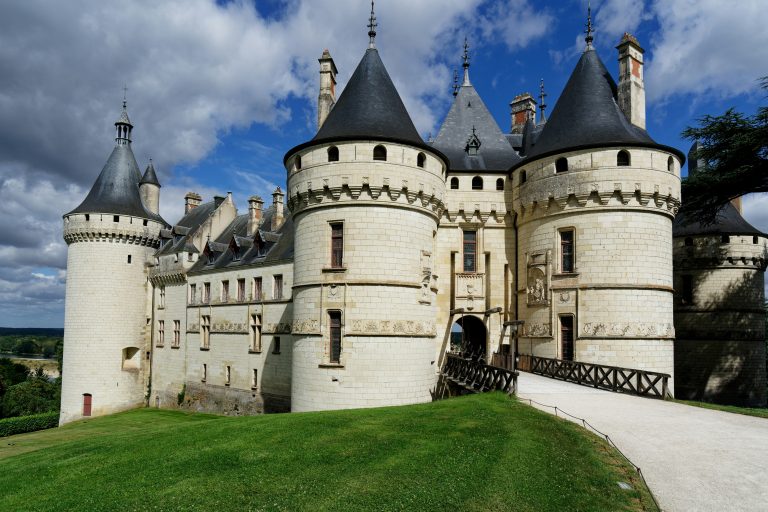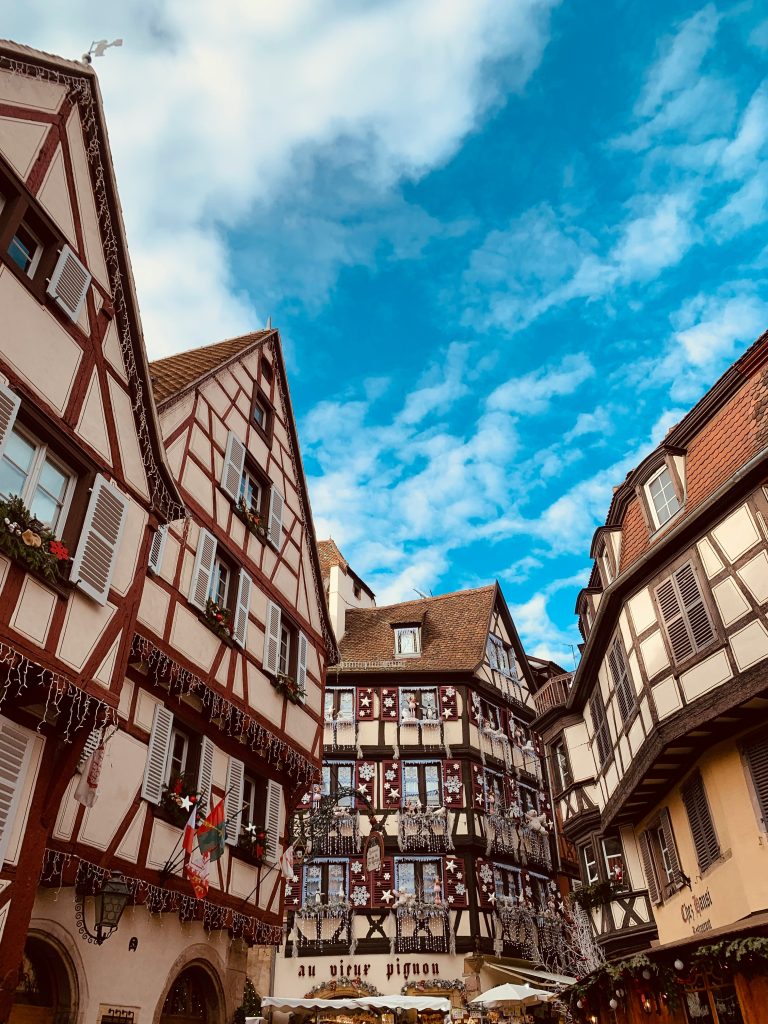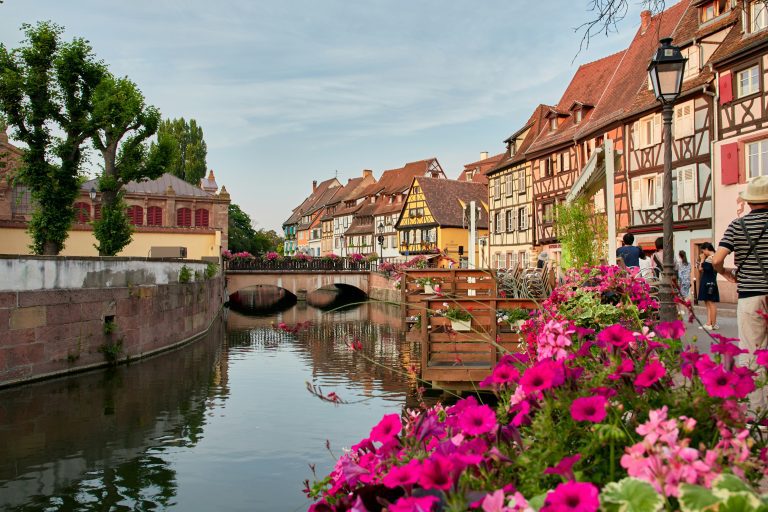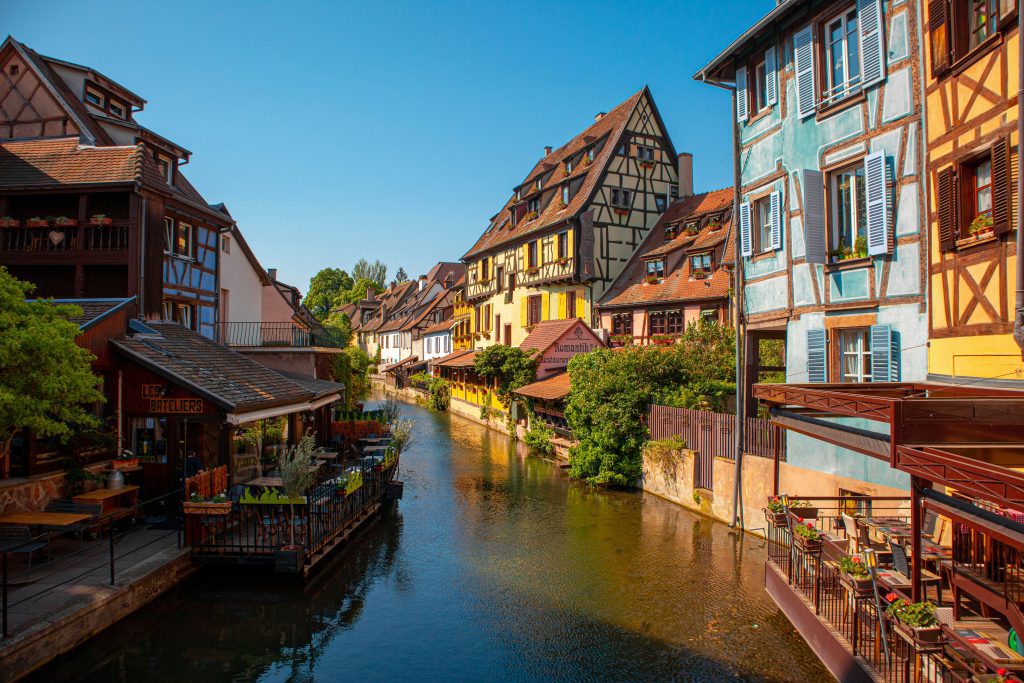
Strasbourg isn’t just the perfect base for exploring Europe – it’s your gateway to three countries in a single day! Located at the heart of Europe, this charming French city puts you within 90 minutes of incredible day trips from Strasbourg across France, Germany, and Switzerland.
While most travelers stick to the popular Alsace wine route, we’ve discovered unique gems that offer deeper cultural experiences and fascinating history. From World War II memorial sites to elegant German spa towns, the best day trips from Strasbourg will give you stories worth telling.
What makes these destinations special? Each one is carefully chosen to avoid tourist crowds while offering authentic local experiences. Plus, we’ll share insider tips for seamless cross-border travel that most guides miss.
Some of the links on this site are affiliate links and I may earn a little something if you decide to click on them at no additional cost to you. Thanks!
Best Day Trips from Strasbourg: French Treasures (Under 1 Hour)
1. Colmar: Little Venice Meets Christmas Magic (45 minutes)
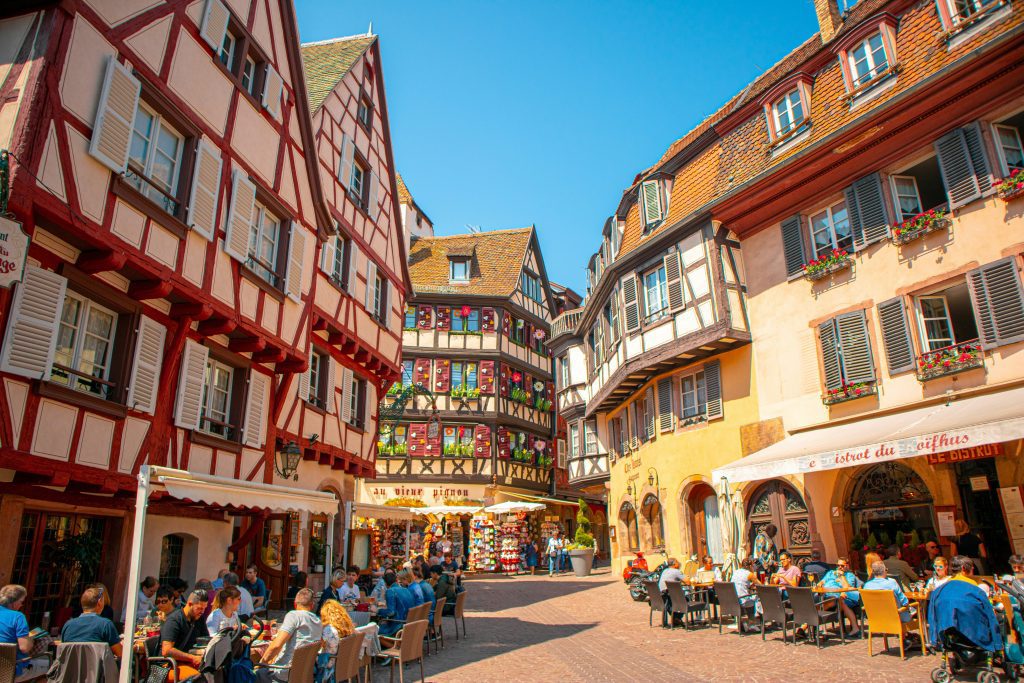
Colmar feels like stepping into a fairy tale, but there’s more to this gem than its famous Instagram spots. While everyone knows about Little Venice, fewer visitors discover the hidden courtyards and artisan workshops tucked behind the main streets.
What to see: Start at Petite Venise for the classic canal photos, then explore the Tanners’ Quarter for authentic local life. Don’t miss the Unterlinden Museum – it houses one of Europe’s most important medieval altarpieces.
Getting there: Direct trains run every 30 minutes (31-minute journey). Book your Strasbourg to Colmar train tickets on Raileurope or at the station. Cost: €8-20 each way.
Insider tip: Visit on weekday mornings to avoid crowds, or during December for one of Europe’s most magical Christmas markets.
2. Saverne: Engineering Marvels & Rose Gardens (45 minutes)
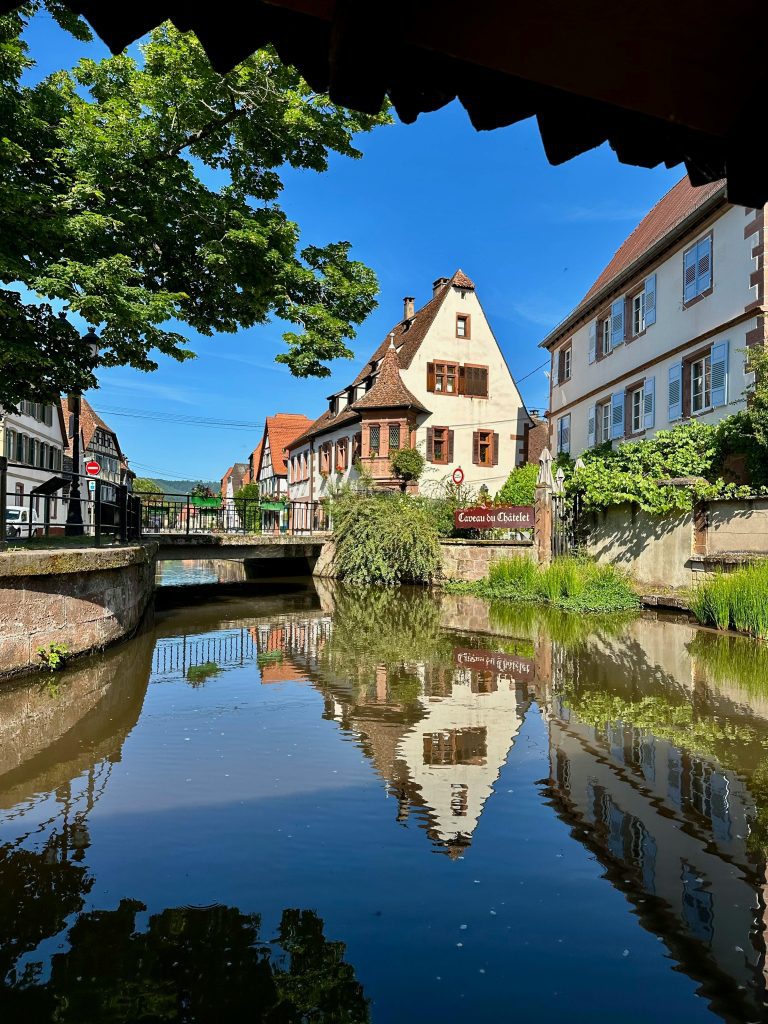
This hidden gem combines French elegance with remarkable engineering. Saverne’s boat lift – one of only a few in the world – raises entire barges 15 meters between canal levels. It’s like watching ships climb stairs!
What to see: The Arzviller-Saint-Louis boat lift operates April through October. The town also features stunning rose gardens (best in June-July) and a beautiful château overlooking the valley.
Getting there: Regional train (TER) runs hourly. Journey time: 45 minutes. Check schedules and book on Raileurope. Cost: €6-9 each way.
Budget tip: Pack a picnic and eat in the château gardens with panoramic views – completely free!
3. Alsace-Moselle Memorial: Understanding Europe’s Complex Past (50 minutes)
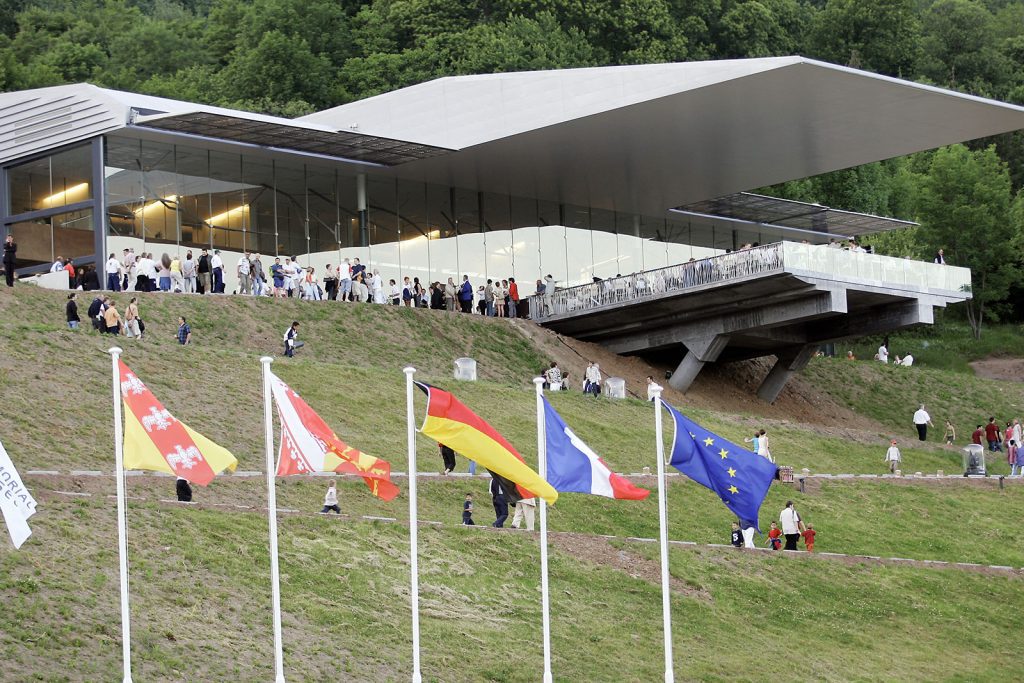
This modern museum tells a story most tourists never hear – how this border region changed hands between France and Germany four times between 1870 and 1945. The exhibits are surprisingly moving and help explain why European unity matters so much here.
What to see: Interactive displays recreate daily life during wartime, showing how ordinary families survived occupation. The museum covers three major conflicts that shaped modern Europe, with immersive recreations that feel like walking through history. You can also visit the nearby Natzweiler-Struthof concentration camp (the only one on French soil) for a complete historical perspective.
Getting there: Train to Schirmeck, then 15-minute walk through forests. Journey time: 50 minutes. Book regional trains on Raileurope. Cost: €7-10 each way.
Family note: Suitable for children 12+ with adult guidance. The museum handles difficult topics sensitively and focuses on resilience and hope alongside the harsh realities.
Plan ahead: Allow 2-3 hours total. Book museum tickets and audio guides in advance on Trip.com for guaranteed entry.
Day Trips from Strasbourg: German Cross-Border Adventures (1-1.5 Hours)
4. Baden-Baden: Thermal Bliss & Belle Époque Glamour (1.5 hours)
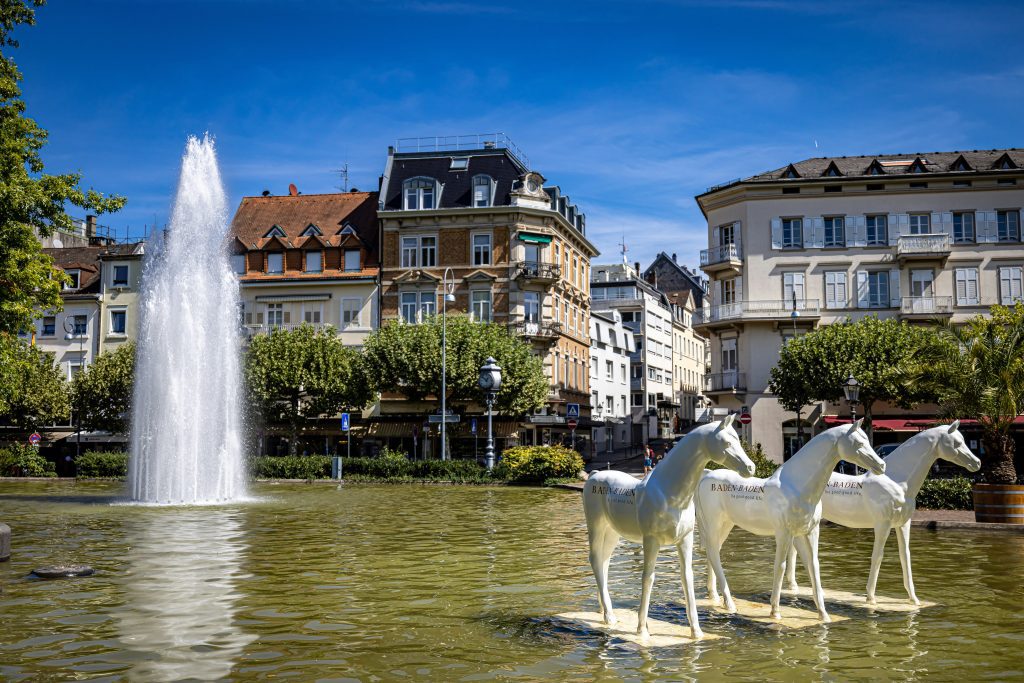
Baden-Baden has been Europe’s playground for 200 years. Roman emperors, Russian nobles, and modern-day celebrities all came here for the same thing – the healing thermal waters that still flow at a perfect 98°F (37°C).
What to experience: The Caracalla Therme offers modern spa luxury, while Friedrichsbad provides traditional Roman-Irish bathing rituals. Both are clothing-optional, but Caracalla has swimsuit areas.
Getting there: Direct regional trains run every 2 hours. Journey time: 1.5 hours. Book Baden-Baden tickets on Raileurope. Cost: €12-18 each way.
Spa booking tip: Reserve thermal bath sessions in advance during peak season.
Money-saving tip: Buy the “Kurpark” combination ticket for spa entry plus local transport.
5. Karlsruhe: The Fan-Shaped City (1.5 hours)

Karlsruhe offers something completely different – a Baroque city designed like a fan, with 32 streets radiating from the central palace. It’s a living lesson in urban planning that actually works.
What to see: The palace houses Germany’s largest law museum. The State Art Gallery has an impressive collection, and the city center is perfect for German shopping and café culture.
Getting there: Regional trains run every hour. Journey time: 1.5 hours. Book on Raileurope for best prices. Cost: €15-22 each way.
Cultural note: This is where Germany’s highest court sits, making it the country’s legal capital.
Strasbourg Day Trip to Switzerland: Basel (1 Hour 15 Minutes)
6. Basel: Three Countries, One Amazing Day (1 hour 15 minutes)
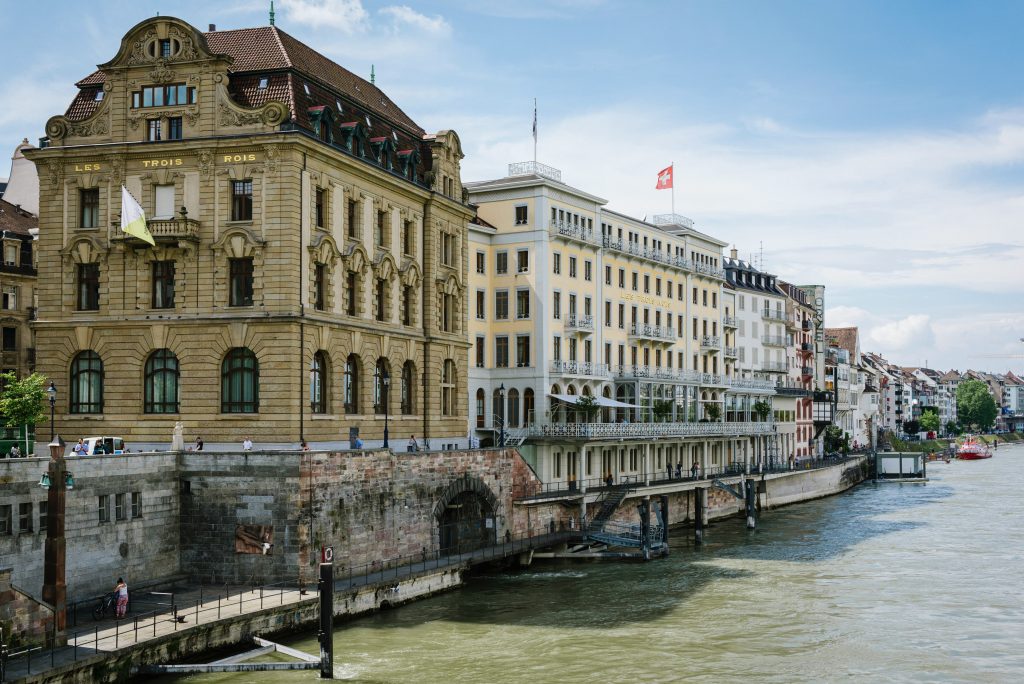
Basel is the only city where you can have breakfast in Switzerland, lunch in France, and dinner in Germany – all without a car! This cultural powerhouse has more museums per capita than anywhere else in the world.
What to see: The old town centers around the red sandstone cathedral with Rhine views. Art lovers shouldn’t miss the Fondation Beyeler or Kunstmuseum. The Rhine itself offers scenic river walks.
Getting there: Direct trains run hourly. Journey time: 1 hour 15 minutes. Book the ticket to Basel on Raileurope. Cost: €13-25 each way.
Border crossing tip: The Dreiländereck (Three Countries Corner) monument marks where Switzerland, France, and Germany meet – perfect for photos!
Planning Your Perfect Strasbourg Day Trip
Transportation Made Simple
Train travel works best for all destinations. Book French trains on SNCF Connect or European routes on Raileurope for easy mobile tickets. For German cities, DB Navigator offers direct booking from Deutsche Bahn.
Pro tip: Planning multiple European destinations? Check out our ultimate guide to 26 travel apps for Europe for booking trains, finding restaurants, and navigating cities seamlessly.
Cross-border considerations: Keep your passport handy for random checks, even though there are no formal border controls within the Schengen zone. German trains often check tickets more strictly than French ones.
Money matters: France and Germany use euros, but Switzerland uses Swiss francs. Many Swiss places accept euros but give change in francs at poor exchange rates. Get a Wise travel card for better exchange rates, or bring some Swiss francs if visiting Basel.
Essential Day Trip Gear
Must-have items for comfortable day trips:
- Comfortable walking shoes for cobblestone streets
- Portable phone charger for maps and tickets
- Lightweight day backpack for essentials
- Universal travel adapter for European plugs
- Travel insurance for cross-border peace of mind
Seasonal Planning Guide
Spring (March-May): Perfect for all destinations. Gardens bloom in Saverne, thermal baths feel amazing after cool weather.
Summer (June-August): Best for outdoor activities and Rhine walks in Basel. Book Baden-Baden spa treatments in advance.
Fall (September-November): Ideal weather for historical sites. The Alsace-Moselle Memorial is especially moving during remembrance season.
Winter (December-February): Christmas markets in Colmar are magical. Thermal baths in Baden-Baden provide perfect winter escapes.
Budget Breakdown
Budget day trip: €15-25 for transport, €10-15 for meals, €5-10 for attractions = €30-50 total
Comfort day trip: €20-30 for transport, €20-30 for meals, €15-25 for attractions = €55-85 total
Luxury day trip: €25-35 for transport, €40-60 for meals, €25-50 for attractions = €90-145 total
Where to Stay in Strasbourg
Base yourself in these top-rated accommodations:
Luxury (€300-500/night):
- Hotel Cour du Corbeau (historic luxury in old town)
- Regent Petite France (canal views and spa)
- Hotel Rohan (cathedral views)
Mid-Range (€100-300/night):
- Hotel Gutenberg (central location)
- Best Western Monopole Métropole (near train station)
- Ibis Strasbourg Centre Petite France
Budget (€60-150/night):
- Hôtel Patricia – Strasbourg Hyper Centre (simple but clean)
- Ibis Budget Strasbourg La Vigie
Guided Tour Alternatives
Prefer organized day trips? These tours include transportation:
- Full-day Alsace villages tour covering Colmar, Riquewihr, and Eguisheim
- WWII historical sites tour with expert commentary
Making the Most of Your Adventure
Start early: Catch the first trains (usually around 6-7 AM) to maximize your time at the destination.
Learn basic phrases: “Bonjour” in France, “Guten Tag” in Germany, and “Grüezi” in Switzerland go a long way.
Try local specialties: Flammkuchen in Alsace, Sauerbraten in Baden-Württemberg, and Rösti in Basel.
Respect local customs: Germans prefer exact change, the Swiss value punctuality above all, and the French appreciate polite greetings.
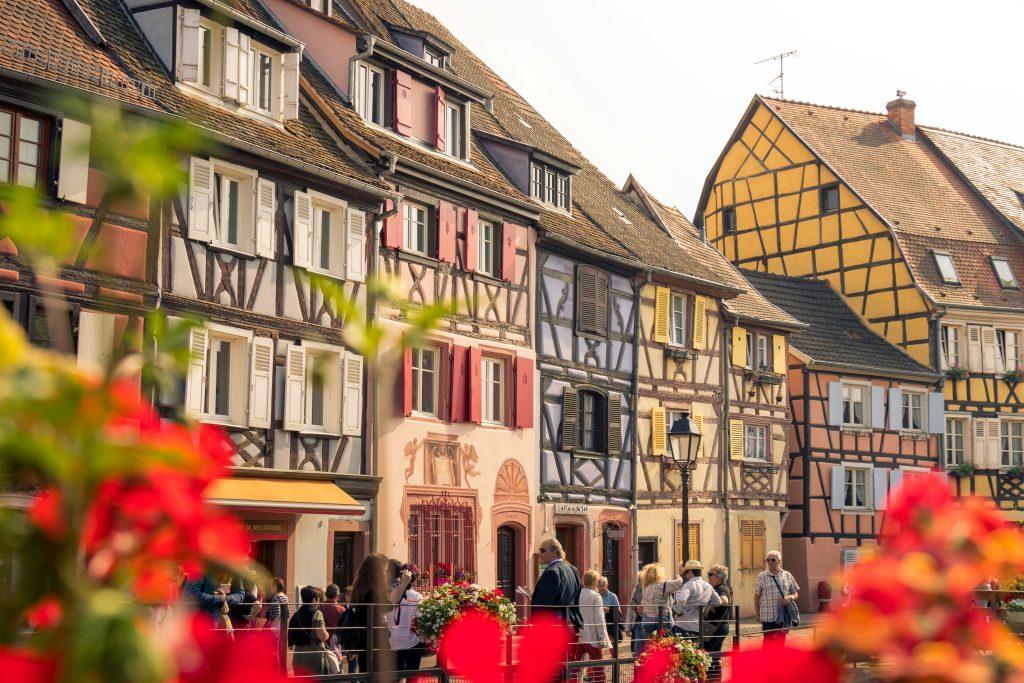
Frequently Asked Questions
1) How long should I plan for each day trip?
Most day trips work best with 8-10 hours total. Leave around 8-9 AM and return by 6-7 PM to get the most out of your visit. For spa towns like Baden-Baden, plan at least 4 hours at the thermal baths plus travel time.
2) Do I need to book train tickets in advance?
For French destinations (TER regional trains), you can buy tickets at the station without reservations. During peak season, you might want to show up early, but you usually don’t need advance booking for regional routes. For German trains and Swiss routes, booking 1-2 days ahead often saves money.
3) Can I visit multiple small villages in one day without a car?
The small Alsace wine villages like Riquewihr and Eguisheim have limited bus service “timed to meet the needs of locals and not tourists”. It’s challenging to visit multiple villages by public transport. Consider staying in Colmar as a better base for village-hopping, or book an organized tour.
4) What should I pack for cross-border day trips?
Essential items:
- Valid passport (required for border crossings, even within Schengen)
- Comfortable walking shoes for cobblestone streets
- Weather-appropriate clothing (German spas can be cool, Swiss mountains change quickly)
- Phone charger and power bank
- Small backpack for day gear
5) Do I need different currencies?
France and Germany use euros, but Switzerland uses Swiss francs (CHF). Many Swiss places accept euros but give change in francs at poor exchange rates. Bring some Swiss francs if visiting Basel, or use cards which typically offer better exchange rates.
6) Are day trips possible without speaking German or French?
Yes! Most tourist areas have English-speaking staff. Basic phrases like “Bonjour” (French), “Guten Tag” (German), and “Grüezi” (Swiss German) are appreciated but not required. Many train stations and tourist information centers have English signage.
7) Which destinations are best for first-time visitors?
Start with Colmar (easiest logistics) and Baden-Baden (unique spa experience). Colmar is “only a 30-minute train ride from Strasbourg” making it “the easiest day trip”. These give you a taste of Alsace charm and German culture without complex planning.
8) Can I do day trips during winter?
Winter is actually magical for day trips! Christmas markets run from late November through December in Strasbourg and Colmar. Thermal spas in Baden-Baden are especially enjoyable in cold weather. Just pack warm clothes and check reduced winter schedules.
9) What’s the best way to get train schedules and tickets?
For French trains: Use SNCF Connect app or website For German trains: DB Navigator app or Trainline For Swiss trains: SBB app or website Regional trains (TER) don’t require reservations, while international routes benefit from advance booking.
10) Are these day trips suitable for families with children?
Most destinations work well for families. Baden-Baden’s Caracalla Therme “allows children and even offers childminding service”. Colmar’s Little Venice boat rides are perfect for kids. However, historical sites like concentration camps require careful consideration of age-appropriateness.
11) What if I only have one day for a trip outside Strasbourg?
Choose Colmar for the classic Alsace experience – it’s closest, has the most to see, and offers great photos. You can easily combine it with “nearby addition” villages like Eguisheim if you have energy.
12) How early should I start my day trip?
Start early by catching “first trains (usually around 6-7 AM) to maximize your time at the destination”. This gives you more sightseeing time and helps you avoid afternoon crowds at popular spots.
13) What about language barriers at train stations?
Some travelers found German transfer stations “confusing” with limited English signage. Download offline maps, take photos of your ticket, and don’t hesitate to ask fellow passengers for help – Europeans are generally very helpful to tourists.
Why These Hidden Gems Beat Tourist Traps
Unlike overcrowded wine villages, these destinations offer authentic experiences without the crowds. You’ll interact with locals, learn fascinating history, and create memories beyond typical tourist photos.
Each location tells part of Europe’s complex story – from medieval trade routes to modern unity. By the end of your trip, you’ll understand why this border region is so special.
Ready to explore? Start with one destination that matches your interests, then gradually work through the list. Each trip builds on the last, creating a deeper appreciation for this remarkable corner of Europe.
Your European adventure starts just one train ride away from Strasbourg!
| Save on your France trip with these resources! These are the companies that I recommend to use when travelling: |
| Flights: Expedia for cheapest and promotional offers on flight options. Trains: SNCF Connect (official French railways) for direct bookings and best prices on TGV and regional trains. Accommodations: Booking.com for the large selections of hotels. Esim: Airalo for affordable global data plans with instant activation in over 200 countries. Travel Insurance: Visitors Coverage for comprehensive international travel insurance with excellent medical coverage and 24/7 support, especially designed for visitors traveling abroad. Cars : RentalCars for comparable car rental prices from a wide range of rental car companies. Private tours and activities: I always choose Viator, Klook or GetYourGuide for their reputable choices of tours and activities. |
